Photo by Ron Galella, Ltd./Ron Galella Collection via Getty Images

video
GRAMMY Rewind: Watch Quincy Jones Win Record Of The Year For "We Are The World" In 1986
In the newest episode of GRAMMY Rewind, 28-time GRAMMY-winning producer Quincy Jones wins Record Of The Year for his star-studded charity single "We Are The World"
"The children that changed this generation from 'I, me, mine' to 'we, you and us': I thank you on behalf of all of USA For Africa," Quincy Jones said to end his acceptance speech for Record Of The Year at the 28th GRAMMY Awards.
The latest episode of GRAMMY Rewind travels back in time to 1986 to relive one of Jones' three wins for his record-breaking charity single, "We Are The World." Watch the super producer's gracious acceptance speech below.
With contributions from megastars like Michael Jackson, Lionel Richie and Stevie Wonder — all three of whom joined Jones on stage in the above video — "We Are The World" helped raise more than $60 million for famine relief efforts in Africa. The star-studded single has sold over 20 million copies and was reportedly the first single to be certified multi-platinum by the RIAA.
Read: GRAMMY Rewind: Watch Lionel Richie & Michael Jackson Win Song Of The Year For "We Are The World"
Along with Record Of The Year, the single took home three other awards that night: Song Of The Year, Best Pop Performance By A Duo Or Group With Vocal and Best Music Video, Short Form. (Jones was not awarded Song Of The Year, as he was not a co-writer.) It was featured on an album of the same name, which was nominated for Album of the Year.
Jones has won 28 GRAMMYs in his lifetime, tying Beyoncé for the most-awarded living person. The 88-year-old legend is also one of the most nominated acts, with 80 nominations to date.
Check back every Friday for new episodes of GRAMMY Rewind.
Mogul Moment: How Quincy Jones Became An Architect Of Black Music
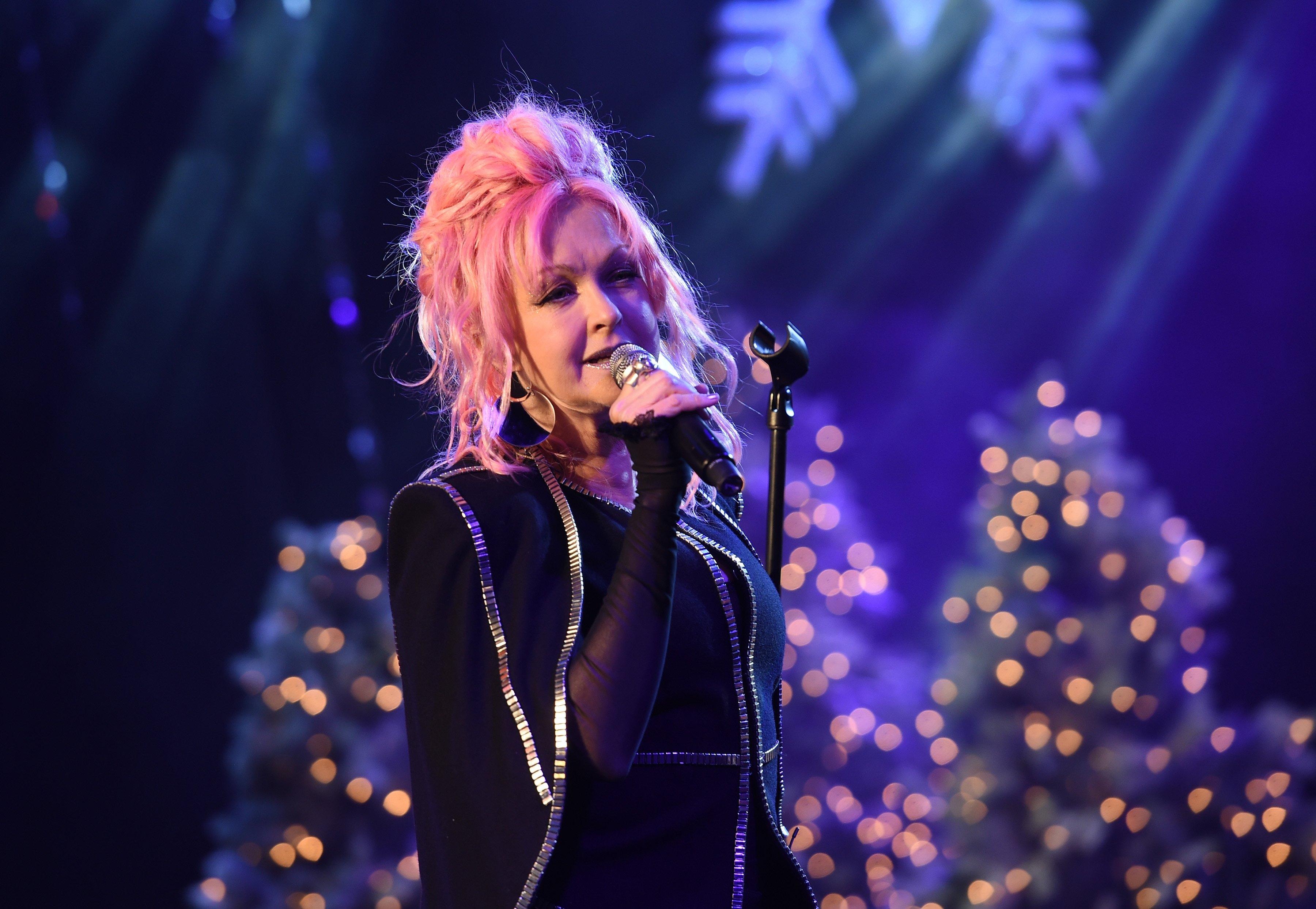
Cyndi Lauper
Photo: Chris Delmas/AFP/Getty Images
list
12 Left-Of-Center Christmas Songs: Cyndi Lauper, Snoop Dogg, The Vandals & More
Tired of the same-old Christmas classics? This playlist of outside-the-box Christmas songs is filled with fresh aural holiday cheer
Editor's Note: This article was updated with a new photo and YouTube videos on Dec. 16, 2024.
When it comes to holiday music, you can never go wrong with the tried-and-true classics.
Who doesn't love Nat "King" Cole's "The Christmas Song," Elvis Presley's "Blue Christmas," Mariah Carey's "All I Want For Christmas Is You," Charles M. Schulz's GRAMMY-nominated A Charlie Brown Christmas soundtrack, or any new version of a festive favorite?
Even so, it's always good to get out of one's comfort zone. With that in mind, unwrap these 12 outside-the-box Christmas songs, spanning rock to rap and featuring everything from refreshing spins on the familiar to unexpected holiday thrills.
Read More: New Christmas Songs For 2024: Listen To 50 Tracks From Pentatonix, Ed Sheeran, LISA & More
John Prine - "Christmas In Prison"
This firsthand account of spending the most joyous holiday locked up and separated from the one you love offers a different kind of longing than the average lonesome Christmas tune. In signature John Prine style, "Christmas In Prison" contains plenty of romantic wit ("I dream of her always, even when I don't dream) and comedic hyperbole ("Her heart is as big as this whole goddamn jail"), with plenty of pining and hope to spare.
"Christmas In Prison" appeared on Prine's third album, 1973's Sweet Revenge, and again as a live version on his 1994 album, A John Prine Christmas, which makes for perfect further off-beat holiday exploration.
Eric Johnson - "The First Nowell"
When it comes to gloriously tasty six-string instrumentals, no one does it better than GRAMMY-winning Texan Eric Johnson. For his take on this timeless Christmas carol, the "Cliffs Of Dover" guitarist intermingles acoustic-based lines, sublime clean guitar passages and Hendrix-y double-stops with his trademark creamy violin-like Strat lines. The result is a sonic equivalent on par with the majesty of the Rockefeller Christmas tree. (For more dazzling holiday guitar tomfoolery, look into the album it's featured on, 1997's Merry Axemas.)
Gayla Peevey - "I Want a Hippopotamus for Christmas (Hippo the Hero)"
Who doesn't want a large semiaquatic mammal for the holidays? For then-10-year-old child star Gayla Peevey, not only did she score with the catchy tune, she also got her wish.
The 1953 novelty hit, written by John Rox, rocketed up the pop charts and led to a fundraising campaign to buy Peevey an actual hippo for Christmas. Children donated their dimes to the cause, and the Oklahoma City native got her hippo, named Mathilda, which she donated to the Oklahoma City Zoo.
The song itself features plodding brass instrumentals and unforgettable lyrics such as, "Mom says a hippo would eat me up but then/ Teacher says a hippo is a vegetarian." It seems Peevey still has a fond legacy with the hippo activist community — she was on hand in 2017 when the Oklahoma City Zoo acquired a pygmy hippopotamus.
The Vandals - "Oi To The World!"
In a contemplative mood this Christmas? Try getting into the holiday spirit by way of meditating on the true meaning of the season with this brash, uptempo Southern California crust punk tune.
Now the best-known song from the Vandals' 1996 Christmas album of the same name, "Oi To The World!" remained a relatively obscure track by the Huntington Beach punkers until it was covered by a rising pop/ska crossover band from nearby Anaheim, Calif., in 1997. (Perhaps you have heard of them — they were called No Doubt.) Ever since, the song has been a mainstay of the Vandals' live sets, and they have also played the album Oi To The World! in its entirety every year since its release at their annual Winter Formal show in Anaheim, now in its 29th year.
Outkast - "Player's Ball (Christmas Mix)"
Though it's best known from OutKast's 1994 debut album, Southernplayalisticadillacmuzik, the Christmas version of the track "Player's Ball" was released earlier on A LaFace Family Christmas, an L.A. Reid-led project to introduce new acts. The then-young Atlanta rapper duo took a Southern hip-hop spin on the season, which can come across as a little irreverent, but at least they're honest: "Ain't no chimneys in the ghetto so I won't be hangin' my socks on no chimneys." Though some people may not find it cheerful, OutKast's season's greetings give "a little somethin' for the players out there hustlin'."
Tom Waits - "Christmas Card From A Hooker In Minneapolis"
You'd be hard-pressed to find a more heartbreaking Christmas story than this Tom Waits' masterpiece from 1978's Blue Valentine. "Charlie, I'm pregnant and living on 9th Street," begins the Christmas card narrative in which a woman writes to an old flame, reporting how much better things are going since she quit drugs and alcohol and found a trombone-playing husband.
Waits' signature early career piano-plinking and tall-tale-storytelling weaves through a dream world of hair grease and used car lots, even sneaking in a Little Anthony And The Imperials reference. In the end, our narrator comes clean with the sobering lyric, "I don't have a husband, he don't play the trombone" before pleading, "I need to borrow money to pay this lawyer and Charlie hey, I'll be eligible for parole come Valentine's Day." For the uninitiated, this is the off-beat genius of GRAMMY winner Waits at his finest.
WINGER - "Silent Night"
Though they took some lumps in their '80s hair-metal heyday, few would dare deny Winger's talent and musicianship. Surely on display here, frontman Kip Winger (a GRAMMY-nominated classical musician) and his bandmates begin with a traditional unplugged reading of the Franz Xaver Gruber-penned holiday chestnut, complete with four-part harmony.
But then it gets really interesting: the boys get "funky" with an inside-out musical pivot that fuses percussive rhythmic accents, pentatonic-based acoustic riffing, Winger's gravely vocals, and some choice bluesy soloing (and high-pitched vocal responses) courtesy of lead guitarist Reb Beach.
The Hives & Cyndi Lauper - "In A Christmas Duel"
With lyrics that include "I know I should have thought twice before I kissed her" in the opening, you know you're in for a sleigh ride like none other. It's therefore no surprise that Cyndi Lauper and Swedish rock band the Hives' unconventional Christmas duel describes many marital hiccups that might make some blush.
Yet, the raucous duet somehow comes out on a high note, concluding, "We should both just be glad/And spend this Christmas together." The 2008 track was the brainchild of the Hives, who always wanted to do a song with Lauper. "This is a Christmas song whose eggnog has been spiked with acid, and whose definition of holiday cheer comes with a complimentary kick below the belt," wrote Huffington Post in 2013. "It's also an absolute riot."
LCD Soundsystem - "Christmas Will Break Your Heart"
Leave it to LCD Soundsystem's producer/frontman James Murphy to pen a holiday song about the depressing side of the season. "If your world is feeling small/ There's no one on the phone/ You feel close enough to call," he sings, tapping into that seasonal weirdness that can creep up, especially as everything around you is incessant smiles, warmth and cheer, and pumpkin-spice lattes. While he doesn't shy away from examining the depressing side of surviving the holiday season as an aging 20-, 30-, 40-something, Murphy does at least give a glimmer of hope to grab onto, transient and fleeting though it may be, as he refrains, "But I'm still coming home to you."
Snoop Doggy Dogg, Dat Nigga Daz, Tray Deee, Bad Azz and Nate Dogg - "Santa Claus Goes Straight To The Ghetto"
As Snoop Dogg declares, "It's Christmas time and my rhyme's steady bumpin'." This track from the 1996 album Christmas On Death Row lets you know why "Santa Claus Goes Straight To The Ghetto." Church food, love between people, and happiness stand out as Christmas is "time to get together and give all you got; you got food, good moods and what's better than together with your people." Love in the hard hood might have to watch itself, but the various artists of Death Row contagiously testify to abundant love and seasonal joy.
Twisted Sister - "Silver Bells"
Bypassing the urge to write new material on their rocking Christmas album, 2006's A Twisted Christmas, Twister Sister instead took the most recognizable holiday classics in the book and made them faster, louder and more aggressive. The result — which, to date, equate to the group's seventh and final album — is a supercharged concept collection of songs such as "Silver Bells," "Have Yourself A Merry Little Christmas" and "Deck The Halls" bludgeoned by chainsaw guitar riffs, thundering drums and lead singer Dee Snider's soaring screams. This unusual combination makes A Twisted Christmas the perfect soundtrack for any child of the '80s still hoping to tick off the neighbors this holiday season.
P-Lo feat. Larry June, Kamaiyah, Saweetie, LaRussell, G-Eazy, thủy & Ymtk) - "Players Holiday '25"
In anticipation of the 2025 NBA All-Star Game in San Francisco, P-Lo breathes new life into T.W.D.Y.'s classic "Players Holiday." Featuring Saweetie, Larry June, Kamaiyah, LaRussell, G-Eazy, thuy, and YMTK, the track celebrates Bay Area culture with its infectious energy and hometown pride. With its dynamic lineup and energetic vibe, "Players Holiday '25" is a love letter to the region's sound and legacy that bridges hip-hop and basketball culture.
This article features contributions from Nate Hertweck, Tim McPhate, Renée Fabian, Brian Haack, Philip Merrill, Nina Frazer and Taylor Weatherby.
Latest News & Exclusive Videos
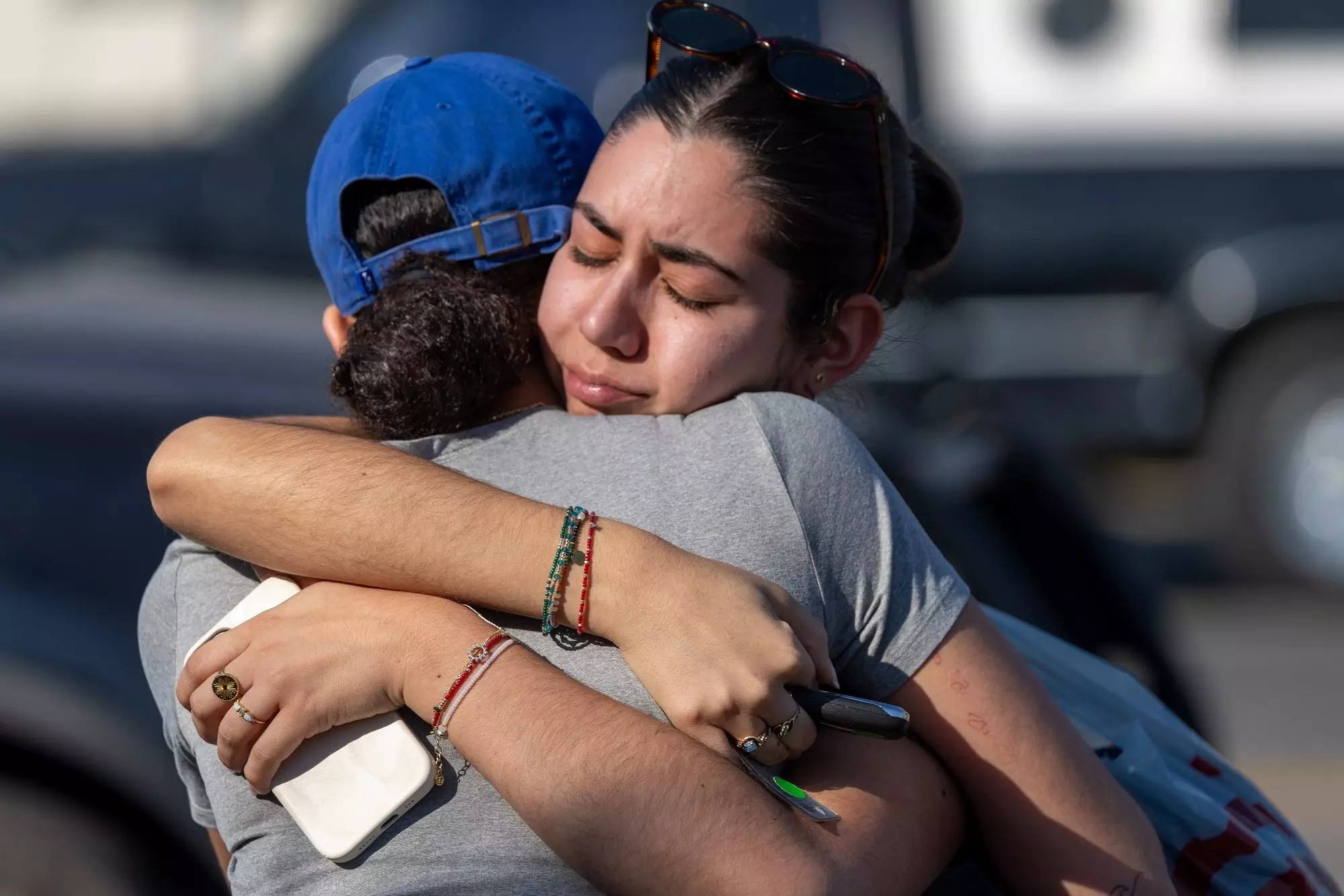
Resources For Musicians Affected By The Los Angeles Wildfires
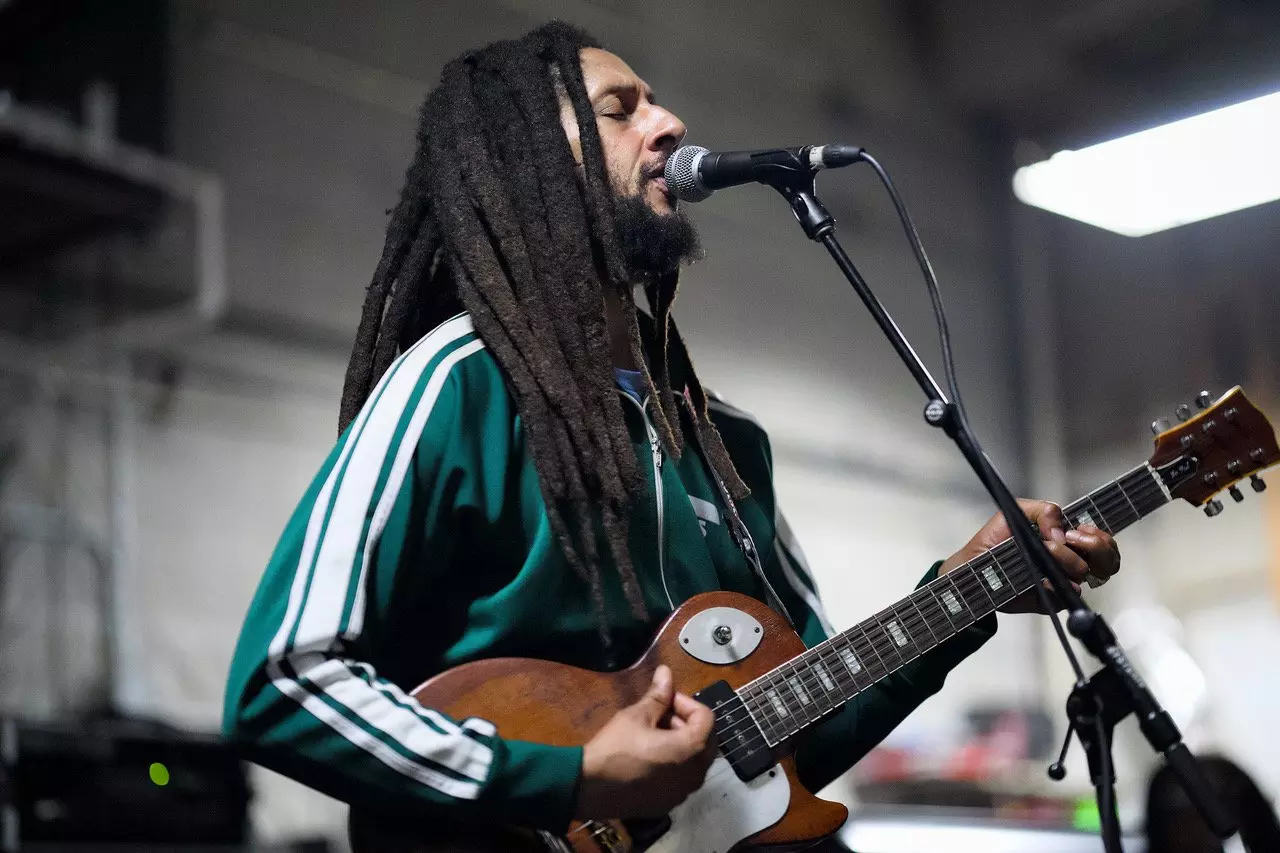
Julian Marley Discusses Bob Marley’s Legacy, Touring With His Brothers & "Extending The Musical Branch"

Living Legends: Rubén Blades On His Place In Latin Music History, Working With The Greats & Taking Salsa Beyond Party Vibes
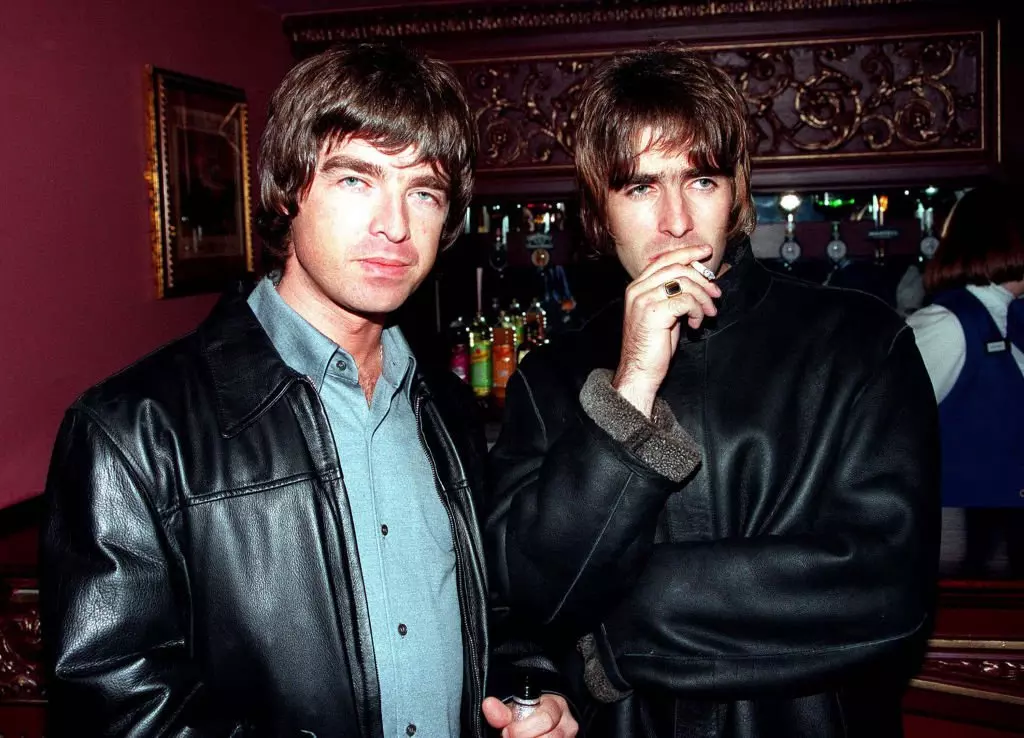
13 Albums Turning 30 In 2025: LPs By Foo Fighters, Shakira, D'Angelo & Others
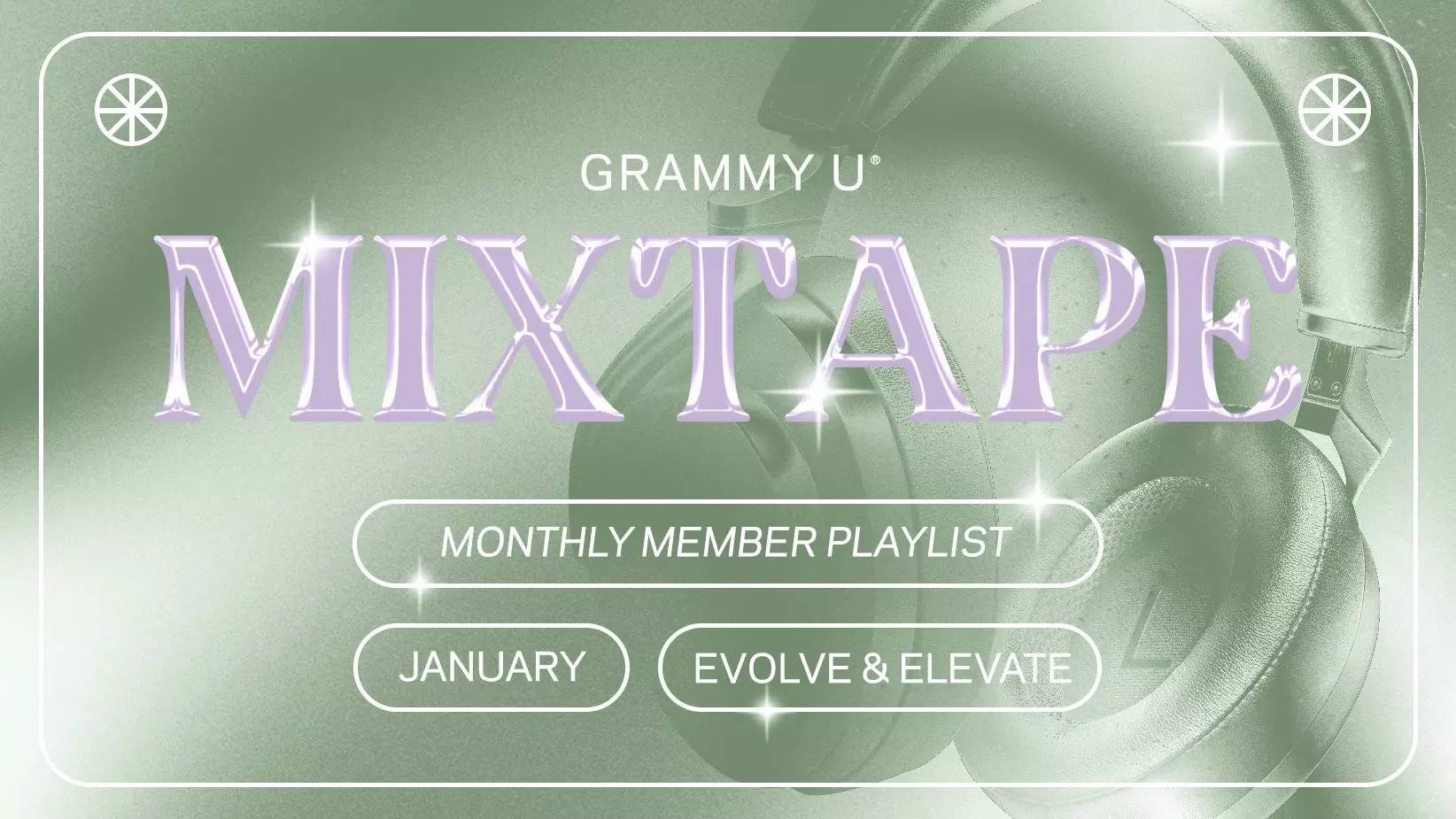
Press Play On GRAMMY U Mixtape: Evolve & Elevate Playlist
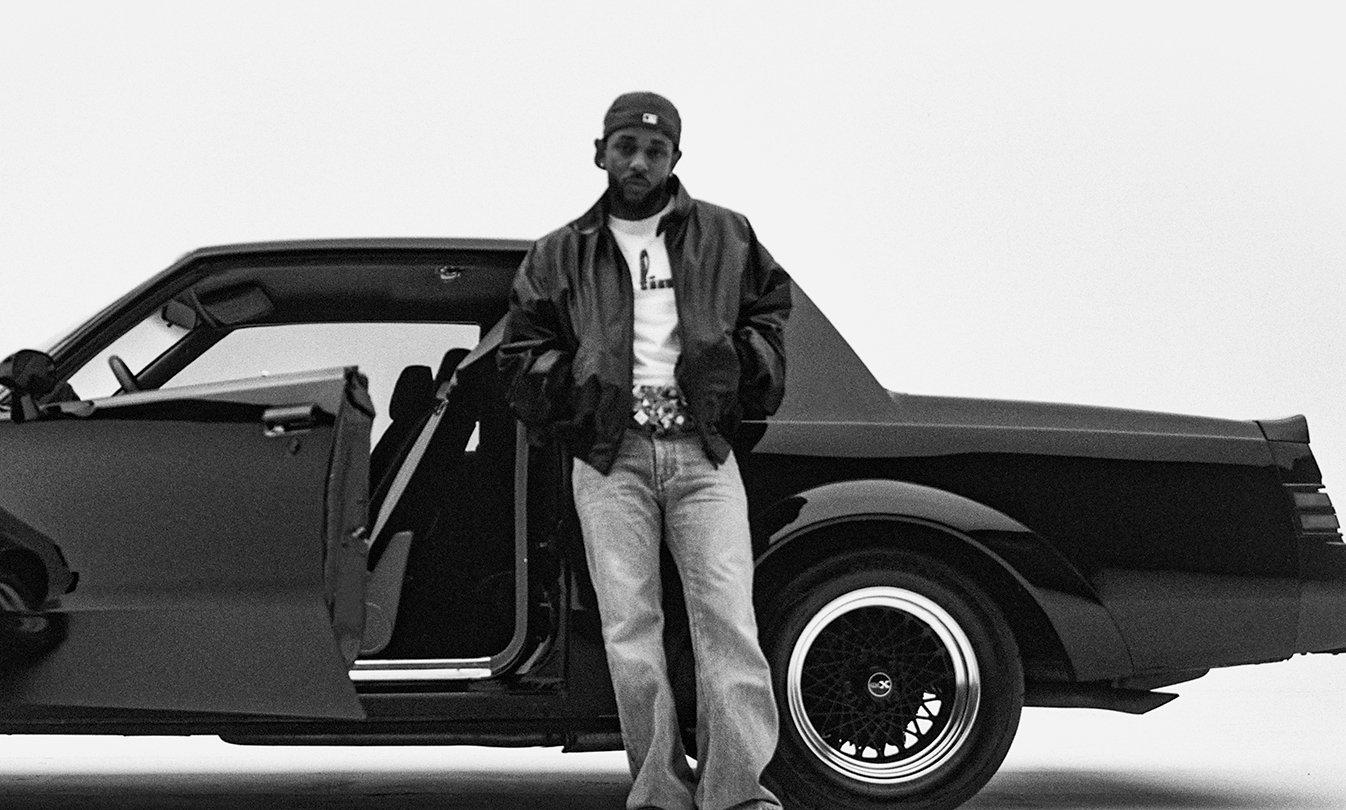
Photo: pgLang
list
Who Discovered Kendrick Lamar? 9 Questions About The 'GNX' Rapper Answered
Did you know Kendrick Lamar was discovered at just 16 years old? And why did he leave TDE? GRAMMY.com dives deep into some of the most popular questions surrounding the multi-GRAMMY winner.
Editor's note: This article was updated to include the latest information about Kendrick Lamar's 2024 album release 'GNX,' and up-to-date GRAMMY wins and nominations with additional reporting by Nina Frazier.
When the world crowns you the king of a genre as competitive as rap, your presence — and lack thereof — is palpable. After a five-year hiatus, Kendrick Lamar declaratively stomped back on stage with his fifth studio album, Mr. Morale & The Big Steppers, to explain why the crown no longer fits him.
Two years later, Lamar circles back to celebrate the west on 2024's GNX, a 12-track release that revels in the root of his love for hip-hop and California culture, from the lowriders to the rappers that laid claim to the golden state.
“My baby boo, you either heal n—s or you kill n—s/ Both is true, it take some tough skin just to deal with you” Lamar raps on "gloria" featuring SZA, a track that opines on his relationship with the genre.
The Compton-born rapper (who was born Kendrick Lamar Duckworth) wasn't always championed as King Kendrick. In hip-hop, artists have to earn that moniker, and Lamar's enthroning occurred in 2013 when he delivered a now-infamous verse on Big Sean's "Control."
"I'm Makaveli's offspring, I'm the King of New York, King of the Coast; one hand I juggle 'em both," Lamar raps before name-dropping some of the top rappers of the time, from Drake to J.Cole.
Whether you've been a fan of Lamar since before his crown-snatching verse or you find yourself in need of a crash course on the 37-year-old rapper's illustrious career, GRAMMY.com answers nine questions that will paint the picture of Lamar's more than decade-long reign.
Who Discovered Kendrick Lamar?
Due to the breakthrough success of his Aftermath Entertainment debut (good kid, m.A.A.d city), most people attribute Kendrick Lamar's discovery to fellow Compton legend Dr. Dre. But seven years before Dre's label came calling, Anthony "Top Dawg" Tiffith saw potential in a 16-year-old rapper by the name of K.Dot.
Lamar's first mixtape in 2004 was enough for Tiffith's Top Dawg Entertainment (TDE) to offer the aspiring rapper a deal with the label in 2005. However, Lamar would later learn that Tiffith's impact on his life dates back to multiple encounters between his father and the TDE founder, which Lamar raps about in his 2017 track "DUCKWORTH."
How Many Albums Has Kendrick Lamar Released?
Kendrick Lamar has released six studio albums: Section.80 (2011), Good Kid, M.A.A.D. City (2012), To Pimp a Butterfly (2015) DAMN. (2017),Mr. Morale & the Big Steppers (2022), and GNX (2024). Good Kid, M.A.A.D. City, To Pimp a Butterfly and DAMN. received both Rap Album Of The Year and Album Of The Year GRAMMY nominations.
What Is Kendrick Lamar's Most Popular Song?
Across the board, it's "HUMBLE." The 2017 track is Lamar's only solo No. 1 on the Billboard Hot 100 (he also reached No. 1 status with Taylor Swift on their remix of her 1989 hit "Bad Blood"), and as of press time, "HUMBLE." is also his most-streamed song on Spotify and YouTube.
How Many GRAMMYs Has Kendrick Lamar Won?
As of November 2024, Kendrick Lamar has won 17 GRAMMYs and has received 57 GRAMMY nominations overall, solidifying his place as one of the most nominated artists in GRAMMY history and the second-most nominated rapper of all time, behind Jay-Z. Five of Lamar's 17 GRAMMY wins are tied to DAMN., which also earned Lamar the status of becoming the first rapper ever to win a Pulitzer Prize.
His most recent wins include three awards at the 2023 GRAMMYs, which included two for his album Mr. Morale & The Big Steppers, and Best Rap Performance for "The Hillbillies" with Baby Keem.
Does Kendrick Lamar Have Any Famous Relatives?
He has two: Rapper Baby Keem and former Los Angeles Lakers star Nick Young are both cousins of his.
Lamar appeared on three tracks — "family ties," "range brothers" and "vent" — from Keem's debut album, The Melodic Blue. Keem then returned the favor for Mr. Morale & The Big Steppers, featuring on "Savior (Interlude)" and "Savior" as well as receiving production and writing credits on "N95" and "Die Hard."
Why Did Kendrick Lamar Wear A Crown Of Thorns?
Lamar can be seen sporting a crown of thorns on the Mr. Morale & The Big Steppers album cover. He has sported the look for multiple performances since the project's release.
Dave Free described the striking headgear as, "a godly representation of hood philosophies told from a digestible youthful lens."
Holy symbolism and the blurred line between kings and gods are themes Lamar revisits often on Mr. Morale & The Big Steppers. He uses lines like "Kendrick made you think about it, but he is not your savior" and songs like "Mirror" to reject the unforeseen, God-like expectations that came with his King of Hip-Hop status.
According to Vogue, the Tiffany & Co. designed crown features 8,000 cobblestone micro pave diamonds and took over 1,300 hours of work by four craftsmen to construct.
Why Did Kendrick Lamar Leave TDE?
After five albums, four mixtapes, one compilation project, an EP, and a GRAMMY-nominated Black Panther: The Album, Kendrick Lamar and Top Dawg Entertainment (TDE) confirmed that Mr. Morale & The Big Steppers was the Compton rapper's last project under the iconic West Coast label.
According to Lamar, his departure was about growth as opposed to any internal troubles. "May the Most High continue to use Top Dawg as a vessel for candid creators. As I continue to pursue my life's calling," Lamar wrote on his website in August 2021. "There's beauty in completion."
TDE president Punch expressed a similar sentiment in an interview with Mic. "We watched him grow from a teenager up into an established grown man, a businessman, and one of the greatest artists of all time," he said. "So it's time to move on and try new things and venture out."
Before Lamar's official exit from TDE, he launched a new venture called pgLang — a multi-disciplinary service company for creators, co-founded with longtime collaborator Dave Free — in 2020. The young company has already collaborated with Cash App, Converse and Louis Vuitton.
Has Kendrick Lamar Ever Performed at The Super Bowl?
Yes, Kendrick Lamar performed in the halftime show for Super Bowl LVI in Los Angeles in 2022, alongside fellow rap legends Dr. Dre, Snoop Dogg and Eminem, as well as R&B icon Mary J. Blige. Anderson .Paak and 50 Cent also made special appearances during the star-studded performance. As if performing at the Super Bowl in your home city wasn't enough, the Compton rapper also got to watch his home team, the Los Angeles Rams, hoist the Lombardi trophy at the end of the night.
Three years after his first Super Bowl halftime performance, Lamar will return to headline the Super Bowl LIX halftime show on Feb. 9, 2025 — just one week after the 2025 GRAMMYs — at the Caesars Superdome in New Orleans.
Is Kendrick Lamar On Tour?
Yes. Kendrick Lamar is currently scheduled to hit the road with SZA on the Grand National Tour beginning in May 2025. Lamar concluded The Big Steppers Tour in 2022, where he was joined by pgLang artists Baby Keem and Tanna Leone. The tour included a four-show homecoming at L.A.'s Crypto.com Arena in September 2022, followed by performances in Europe,Australia, and New Zealand through late 2022.
Currently, there are no upcoming tour dates scheduled, but fans should check back for updates following the release of GNX.
Latest In Rap Music, News & Videos

Kanye West On His 2005 GRAMMY Debut
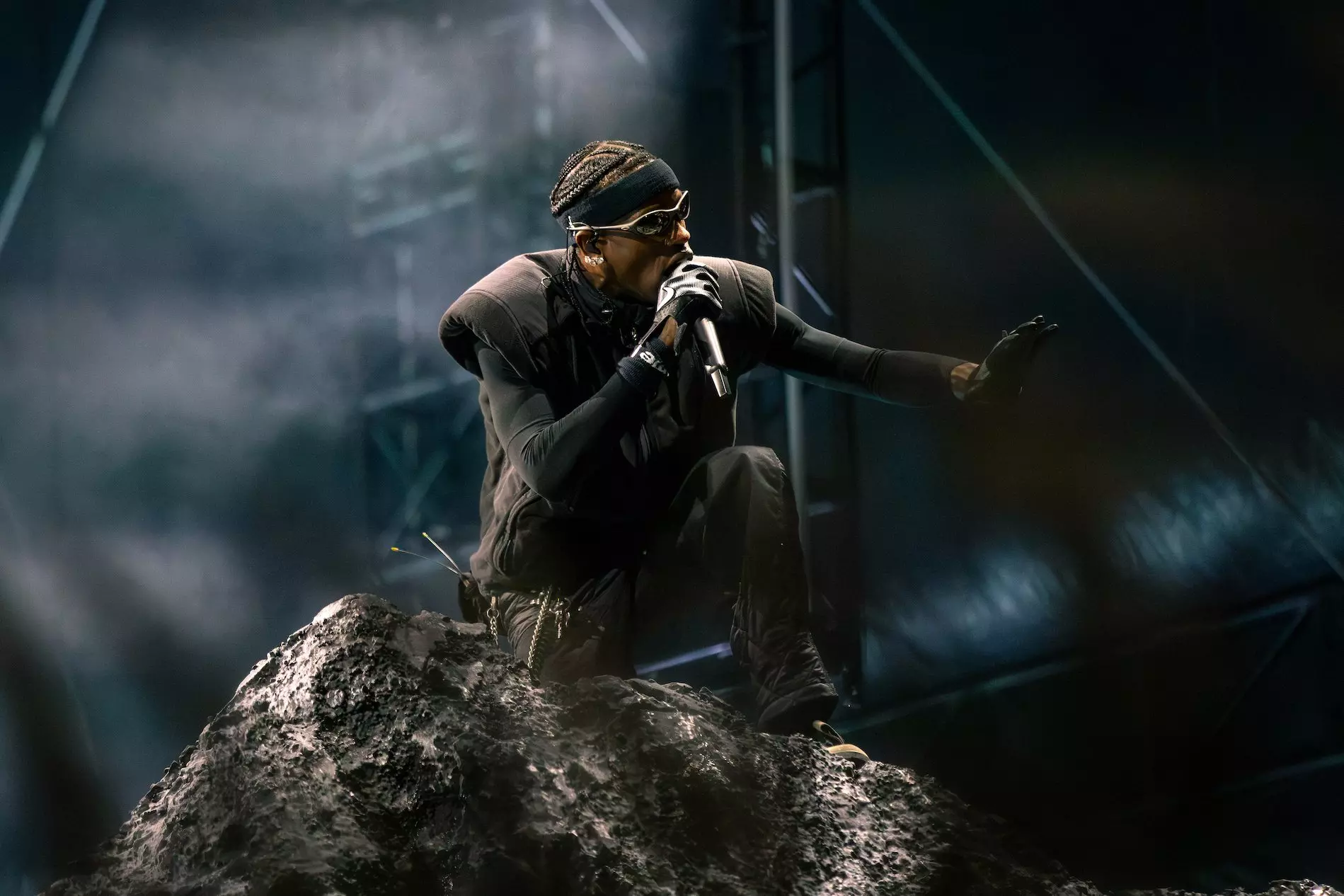
8 Unforgettable Sets From Rolling Loud Miami 2024: Future, JT, Travis Scott & More

10 Years Of Rolling Loud: Festival Founders Talk SoundCloud Beginnings, Global Expansion & Interstellar Future
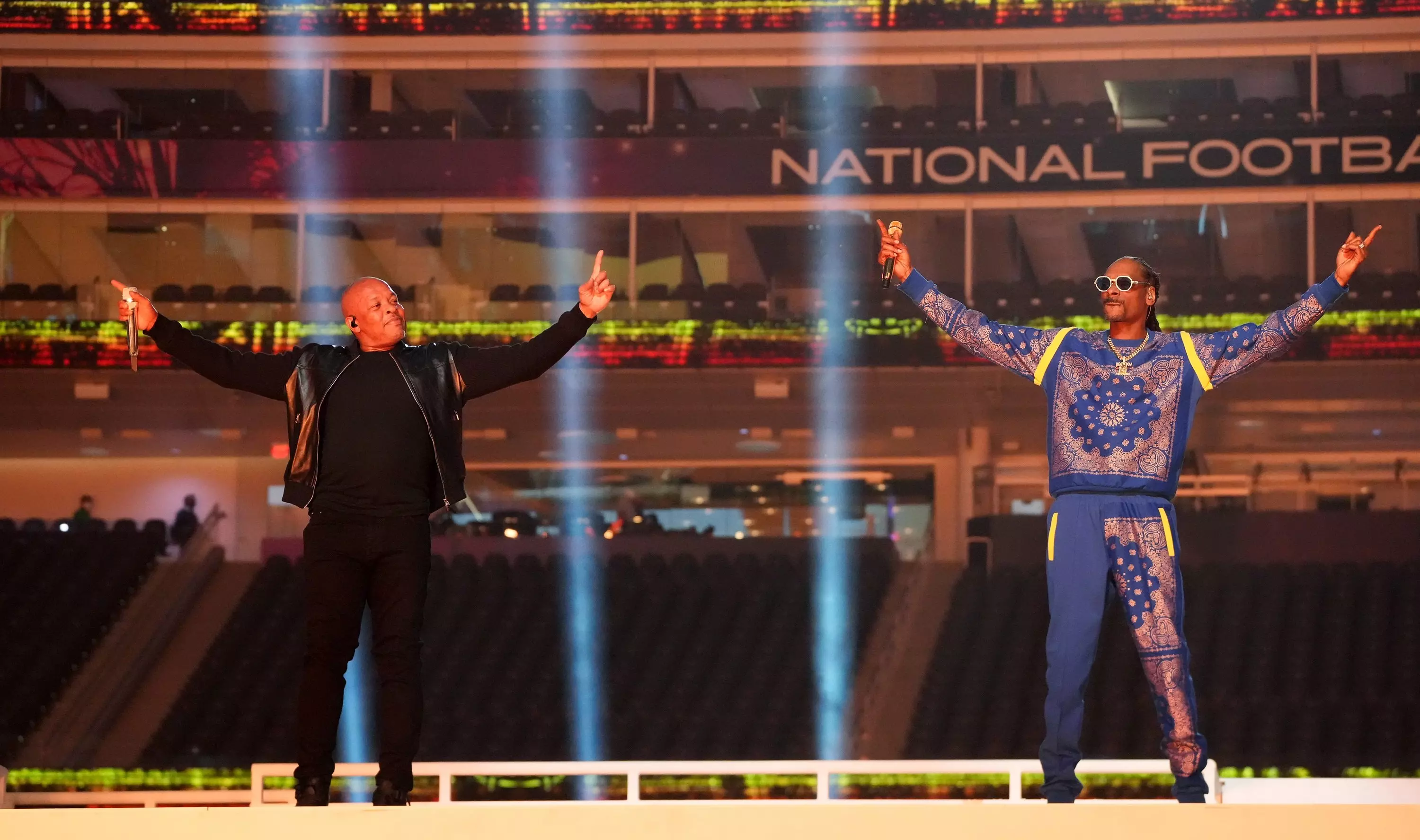
How Snoop Dogg & Dr. Dre Became Rap's Most Iconic Duo: A Timeline Of Their Friendship

Kendrick Lamar & Imagine Dragons' GRAMMY Mashup
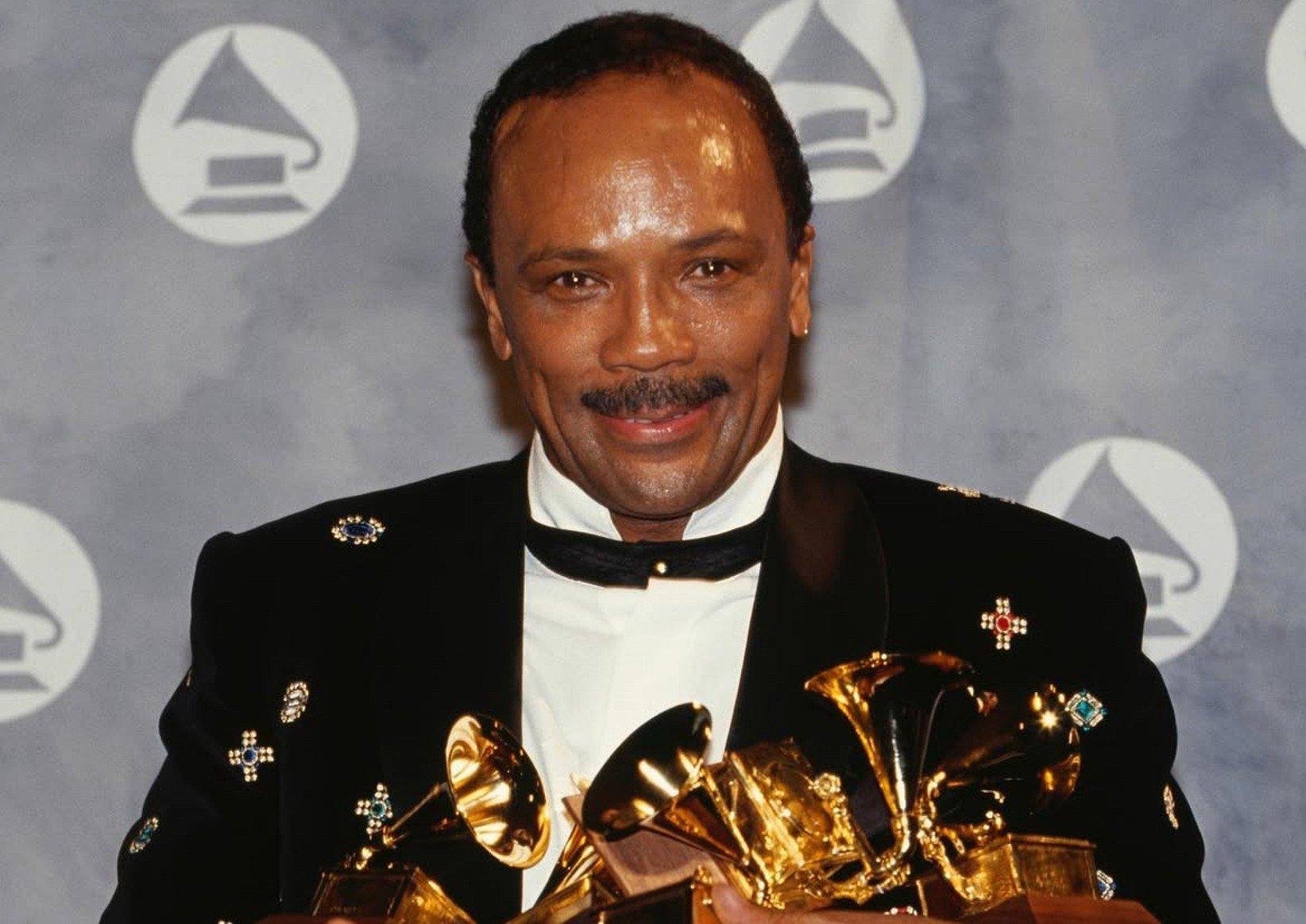
Photo: Sam Emerson
feature
Remembering Quincy Jones: Musical Pioneer, Inspiration, Activist & Renaissance Man
The conductor, composer, producer, arranger, musician, activist, and all-around mastermind passed away on Nov. 3 at age 91. An icon, Jones worked with most of music’s legendary names and inspired countless others, creating an unmatched legacy.
Quincy Jones helped shape nearly every facet of pop music history, either directly or indirectly, for more than half a century. On Nov. 3, the consummate multi-hyphenate passed away at the age of 91.
The recipient of 28 GRAMMY wins and 80 nominations — ranking third and fourth most in the organization’s history, respectively — Jones will be remembered for his work with everyone from Michael Jackson to Frank Sinatra, Aretha Franklin to Count Basie. He was also known for his powerful support of many humanitarian causes.
Jones’ legacy within the Recording Academy dates back to just a few years after its founding. The Great Wide World of Quincy Jones was nominated for Best Jazz Performance Large Group at the 3rd GRAMMY Awards, and not a decade passed since without the icon receiving an award. In addition, Jones was the recipient of the Trustees Award in 1989, the GRAMMY Legend Award in 1992, and the MusiCares Person Of The Year in 1996, and was the subject of a GRAMMY Foundation gala tribute in 2014. In 2023, Jones became the first-ever recipient of the Academy & State Department’s PEACE Through Music Award.
In presenting that last award, Recording Academy CEO Harvey Mason jr. called Jones his "friend and mentor," and noted that his respect and admiration for Jones are echoed throughout the organization. "We are all absolutely heartbroken by the passing of the incomparable Quincy Jones," Mason jr. said in a statement. "A master of many crafts, Quincy’s artistry and humanity impacted artists, music creators, and audiences around the world and will continue to do so. He has been recognized by his Recording Academy peers with an extraordinary 28 GRAMMY awards, standing among the most celebrated recipients in GRAMMY history. Quincy leaves behind an unmatched legacy and will always be remembered for the joy he and his music brought to the world."
Jones' long list of accolades also includes honorary degrees from Harvard, Princeton, and Juilliard, as well as a National Medal of Arts. His legacy doesn’t stop with the immense impact of his music, but extends to activism and humanitarianism. Jones was an advocate for Dr. Martin Luther King Jr. and his Operation Breadbasket, served on the board of People United to Save Humanity, founded the Quincy Jones Listen Up Foundation, supported the work of the NAACP, GLAAD, and other organizations, and produced the "We Are the World" charity single.
With such a massive footprint both personally and professionally, it should be no surprise that news of his passing has resulted in seemingly endless remembrance and thanks across social media. Elton John, Victoria Monét, Reverend Al Sharpton, LL Cool J and Lin Manuel-Miranda were among the many artists praising Quincy Jones' influence and legacy.
"Wow, Q - what a great ride!!" Lionel Richie wrote on X, accompanied by a picture of the two together. Jones and Richie worked closely together on "We Are the World," a project which was also co-written by Michael Jackson. After connecting with Jackson for The Wiz, Jones became a frequent collaborator of the pop icon, including the albums Off the Wall, Thriller, and Bad.
"The world mourns the loss & celebrates the life of Quincy Jones," the Jackson estate shared. "A legendary talent whose contributions to music spanned generations and genres. What an MJ/Q decade-long partnership produced is unmatched and includes the biggest selling album of all time. Rest in Peace, Q."
Clive Davis similarly mourned Jones’ passing. "Quincy Jones was a true giant of music," he wrote on Instagram. "Whether it was jazz, pop, r&b or rock, no genre of music escaped his genius…Say ‘We Are the World’ and say ‘The Color Purple’ and you’ll understand the range of his music. He was the ultimate music renaissance man and a true inspiration to all of us in music."
In an Instagram post, John Legend reflected on joy Jones "brought to every room. He was the life of the party, so charming and full of light. I feel so fortunate to have witnessed it in person. But we’re all so fortunate to live in a world made more beautiful by the music he created."
A True Innovator Who Always Built Up
"I'm often asked what my 'formula for success' is...but to be honest, there is no formula or road map, and if anyone tells you there is, they're full of it," Jones wrote in the introduction to his 2022 book, 12 Notes: On Life and Creativity.
For Jones, that winding road started with a childhood on the South Side of Chicago, before moving in his early years between Kentucky and Washington before joining his school band and choir, not to mention convincing Count Basie trumpeter Clark Terry to give him lessons. He also crossed paths and shared the stage with Ray Charles, when Jones was 14 and Charles 16. An obviously prodigious talent, Jones relocated to New York by his early 20s; he quickly became a freelance arranger for Count Basie and musical director, arranger, and trumpeter for Dizzy Gilespie.
Jones began his solo recording career in 1956 with This Is How I Feel About Jazz, and moved to Paris, where he learned to arrange strings and studied music theory. This was followed by invitations to work on stage musicals and film soundtracks (including The Pawnbroker, In the Heat of the Night, and In Cold Blood (not to mention much later contributing music to and even appearing in the Austin Powers series. Jones had signed as an artist to Mercury Records in 1958 and moved his way up the executive ladder — a first for a Black man at a major label — becoming music director and, eventually, vice president.
After excelling in jazz at Mercury, Jones reached pop success by shepherding Lesley Gore's "It's My Party" to the top of the charts. He continued releasing his own material as well, experimenting at the intersections of jazz, funk, and more.
While Jones may be most known for his 1980s run with Michael Jackson, the decade also saw him open Qwest, a label that released works from the likes of Frank Sinatra, Lena Horne, and New Order, among many others. "It’s so sad to hear about Quincy Jones. When he signed us to his label, he made us feel so welcome - inviting us to dinner at his home every time we were in town," former New Order bassist Peter Hook posted on X. "He made us big in America. He was so humble & sweet that you immediately fell in love with him."
Read more: Mogul Moment: How Quincy Jones Became An Architect Of Black Music
Jones won 13 of his 28 GRAMMYs in the ‘80s, including Record Of The Year, Best Pop Duo or Group Performance, and Best Music Video for "We Are the World." In a recent interview with GRAMMY.com, Lionel Richie described Jones’ steady, nurturing hand on the project: "I asked Quincy a very important question one time. I said, ‘How in the world did you deal with all of those various personalities and stuff?’ He said, ‘What do you think an arranger does? … My job is to organize chaos.’"
A Jack Of All Trades — And Master Of All
In addition to writing and recording his own music and producing for others, Jones proved to be a mastermind across many other parts of the entertainment industry. In the '90s, he launched Quincy Jones Entertainment. Beyond operating his record label, the company produced successful TV shows like "The Fresh Prince of Bel Air" and "Mad TV", and helped publish music magazines Vibe and Spin.
The ‘90s also saw Jones’ music intertwined with hip-hop, most notably as sampled by Tupac in the chart-topping "How Do U Want It." The legendary Ice-T, who had guested on Jones’ album Back on the Block, expressed the impact that the legendary musician and producer had made: "Love you Quincy.. You changed my life."
One of Jones’ final appearances on record came in 2022, where he provided a spoken word track to The Weeknd's Dawn FM called "A Tale By Quincy." The Weeknd’s Abel Tesfaye even wrote the foreword to Jones’ 2022 book, 12 Notes, which included a powerful summary of the impact that Jones had on Tesfaye — and the entire musical world. "Even if you've already read his autobiography or know everything there is to know about him, I hope you'll take time to listen to the advice he has to share with you in the pages of this book," Tesfaye wrote. "Because I promise it is what matters the most."
"My fans know how important Quincy was to the fabric of my music," he added on X. "[I] tried to capture what he meant to me as a human. Let’s celebrate his life today."
Latest News & Exclusive Videos

Resources For Musicians Affected By The Los Angeles Wildfires

Julian Marley Discusses Bob Marley’s Legacy, Touring With His Brothers & "Extending The Musical Branch"

Living Legends: Rubén Blades On His Place In Latin Music History, Working With The Greats & Taking Salsa Beyond Party Vibes

13 Albums Turning 30 In 2025: LPs By Foo Fighters, Shakira, D'Angelo & Others

Press Play On GRAMMY U Mixtape: Evolve & Elevate Playlist

Photo: Corine Solberg/Getty Images
interview
Living Legends: Lionel Richie On 'The Greatest Night In Pop,' "American Idol" & The Evolving Essence Of The Music Industry
"When I wrote those lyrics…it was exactly the feeling of where we are now as a world," Lionel Richie says of "We Are the World." In a wide-ranging interview, the four-time GRAMMY winner discusses the iconic charity single and his career to date.
Whether explaining to his parents that the Commodores would be the "Black Beatles" or writing a mega-smash charity single in a single evening, a young Lionel Richie has something of a mantra: "Everything was possible."
When the now-iconic "We Are the World" first hit the airwaves in 1985, listeners surely were awed at the thought of so many legends in one room. Performing under the banner of USA for Africa, the track featured everyone from Ray Charles to Stevie Wonder, Michael Jackson to Bruce Springsteen, Cyndi Lauper to Tina Turner, and sold more than 20 million physical copies to raise money for African famine relief. The song’s recording was documented and encapsulated in the recently released documentary The Greatest Night in Pop.
Richie is the glowing supernova of musicianship creative wrangling at the core of the song and film. "Part of the whole magic of the song was to know the back side of it," Richie tells GRAMMY.com, hinting at the open, warm tone that has characterized his entire career.
Richie's sterling vocals and immaculate songwriting first rose to international prominence in his time as co-lead singer of Motown heroes the Commodores, for whom he wrote songs like "Easy" and "Three Times a Lady." Richie expanded his already endless pop charm as a solo artist, topping charts and winning countless acclaim and listeners’ hearts alike with songs such as "All Night Long (All Night)," "Hello," "Say You, Say Me," and "Dancing on the Ceiling."
When the concept for creating a track to raise funds and awareness for African famine relief was first broached by legendary artist and activist Harry Belafonte and manager Ken Kragen, Richie was tapped to write the song with Michael Jackson. The duo pulled an all-nighter to write the track a day before the first recording session — which also happened to be the very same day Richie was to host the American Music Awards, his first hosting gig on television. (Richie has become a fixture on TV, including his recent stint as a judge on "American Idol.")
Throughout his myriad roles and projects, Lionel Richie remains both incredibly professional and one of the warmest personalities in the music industry — not to mention a captivatingly brilliant musician and four-time GRAMMY winner. GRAMMY.com caught up with Richie to discuss the making of "We Are the World," finding himself in the room with every one of the icons he admired, and the continued need for hope and positivity 40 years later.
I have to tell you, I re-watched The Greatest Night in Pop this morning, and it is no less incredible after another watch.
Thank you. It's one of those moments in time. Just to see the positivity, number one, and number two, the impossibility of how we pull this off. Trying to do that today, you would just want to drive yourself crazy. There's no way today you can keep a secret.
Of course you’d have a leak, and is everybody going to show up? There’d be too many egos. "Leave your ego at the door?" You won't even leave your ego at the phone call.
The whole business has changed. But in the documentary, you really feel the weight of the challenge and the massive scope of opportunity. During that time, were you completely confident or or was there a constant worry that it might fall apart? Perhaps you had so many responsibilities that success and failure didn't even cross your mind.
You know what's so brilliant about being young and naïve? Everything has possibilities.
I look back on my career, when I walked in that door that fateful day that I was going to tell my parents that I was going to drop out of my last semester of my senior year and go full time with the Commodores. And I said, "Mom, Dad, we're the Black Beatles. We're going to take over the world." That takes a lot of just innocence and naivety and youth. Everything was possible. With "We Are the World," we were all kind of sitting there going, "What can we do [to make this work]?" And as we started calling up people, it just became "I'm in." "I'm in." "I'm in."
Of course, Ken [Kragen, manager] didn't tell us that he was making all these phone calls. We just thought it was going to be Quincy [Jones], Stevie [Wonder], Michael [Jackson], and myself. And Harry Belafonte. And the next thing we know, we've got all these artists waiting for the song that we haven't written. [Laughs.]
I think that was so wonderful that you didn't have that level of project in mind. Whilst naivety is part of the process, I feel like if you weren't able to be so in the moment, the song may have come out differently.
I always believe that if you have too much time to think about something, you're going to mess it up. I said yes to something that I didn't realize I had no time to do. This is my solo time in life. I've just left the Commodores; I'm hosting the American Music Awards. I've never done that before.
And of course, the pressure was there as well. Who is this kid to host this show alone? Alone, alone, not with two or three hosts. There was a lot of doubt as to whether this kid could do this or not, you know. As time went on, it just became another part of the story. And I've always believed I'm very good at getting myself into crap. And then I have to work my way out of it.
You're a good swimmer.
[Laughs.] Yeah. And so this thing just started evolving. "Okay, Lionel, what about the rehearsal for the American Music Awards?" And I go, "Oh, that's right. We have to rehearse."
The rehearsal time was also the time we had to cut the track for "We Are the World." And then we have to write the lyrics. Meanwhile, I have to rehearse [for the AMAs]. But, you know, I look back on it, honestly, and it was just divinely guided. Sometimes if you just have a chance to sit back and think about the intricate parts of it, everyone showed up at the right time to do the right thing.
It was astonishing to think about how many roles you had in that record coming to life. You were a writer, a singer, a producer, a coach, a psychiatrist, a guide. And you continue taking on so many different types of projects and roles to this day.
Well, let me tell you what makes things like "We Are the World" happen. I won’t just sit here and talk about, you know, how I did it. That was a room full of pros, you follow me? Quincy Jones, master producer, master arranger. I asked Quincy a very important question one time. I said, "How in the world did you deal with all of those various personalities and stuff?" He said, "What do you think an arranger does?" I said, "What do you mean?" He said, "What do you think I do for a living? My job is to organize chaos." In other words, the woodwinds are playing one thing. The brass are playing something else. The violins are playing something else. And all together it sounds like a song. Well, he was the master of that.
When you bring in artists from all different genres, each one of those artists, A, had their own sound, and B, knew how to deliver it. So all we had to do was kind of set the stage for them to do that half a line and pull it off. But behind the scenes, look at Humberto Gatica. He is a great engineer. How many tracks can you mess up? He had 99 million tracks and all of a sudden we couldn't have a delay [in the schedule]. There was no delay possible. I think what made my part of this whole thing, I was just putting out fires. Wherever there was a fire, like, "Okay, Bob Dylan, you need to go see Stevie Wonder. [Laughs.] And Huey Lewis, you just need to calm down." He thought he was just going to come and hang out.
Oh, Huey is such a fun guy!
Huey was going, "I'm going to sing whose part?" [Laughs.] It made everybody honest. I said, "Okay, Quincy, how are we going to pull this off? Is everybody going to go in the vocal booth one by one to do their parts?" He said, "No, no, no, no. We're going to put them in a circle and let them sing to each other." And I said, "What?"
He said, "I promise you, they'll be perfect on every round." Because when you're facing each other, there is no "Give me another take" or "Give me two more takes" or "Let me warm up." Just the fear factor of facing every artist you've ever admired in your whole life. There's Ray Charles over there. There's Kenny Rogers over here. There’s Diana Ross.
And Tina Turner!
And Bruce. And Billy Joel. We were, basically, the youngsters in the room. There's Michael. We'd all been around in the business a long time, but we'd never just been in a room to face each other.
So I think what was so amazing is when we went around one time at that piano, just to hear how it was all going to sound, that's when we knew we've got something. It was going to be a good sound.
Fitting all those different sounds and voices is such a beautiful achievement. It really makes you stand out, that ability to guide people and projects so naturally. It really makes sense that you have this continued role as a statesman of the industry, even down to your work on "American Idol."
You know what was so great? What we all heard back then, and what still rings true today, there's a word that the world needs right now. It's called hope. [When] that song came out 40 years ago; it was this amazing light, this beacon of hope. People started going, "Ah, okay, you're right. We need to care about each other."
It's one of those aha moments when you realize that a group of us got together and actually made that statement. As world-famous artists, we took all of our light as celebrities and entertainers and songwriters and shined it on hunger and starvation in the world. It was just a great statement.
I’m sure you have countless admirers who come up to you and talk about your work, but can you share some things that listeners have told you about that song in particular?
What I loved is when you start getting the 7- to 12-year-olds [saying] "We sing ‘We Are the World’ in our school!" Then that segues over to "American Idol."
When I first met Bao [Nguyen], the director [of The Greatest Night in Pop], he scared me to absolute death because I'm thinking that we're going to bring in a well-seasoned director from 1983 or 1984. He says, "I was two years old when that song came out in Vietnam." [Laughs.]
A lot of people just heard the song, but they didn't know the background [or my role in it]. So they didn't know that Michael and I wrote the song together. They knew I was maybe in the song, but they didn't know to what degree. I’m having a lot of people just come up to me with the sheer discovery. "Oh, my God, I didn't even know you did it."
"Where have you been?"
It really tells how blessed we were, because think about this now. All of us [working on the song] went on to have careers, major careers; that was the beginning of our big explosion.
What I love the most, I think, is just the fact that what Michael and I set out to do with that song was we wanted not a song, not a hit record. We wanted an anthem. We wanted a song that will stay around generation after generation, year after year. When people ask me right now, "God, Lionel, you need to write another song, because we need it so much today." And I go, "Play the song again."
It's so relevant. Absolutely.
Everything I wanted to say 40 years ago, I would write today. In other words, history just keeps repeating itself over and over again. And everyone keeps thinking you need something new. No, the whole song said everything.
But then when was your last all-nighter? Because that was a pretty epic all-nighter that you had that night.
[Laughs.] That was an "all-two-dayer"! That was the day before rehearsing for the American Music Awards. You then wake up and then actually start rehearsing from 7 in the morning at the Shrine Auditorium 'til the show started, and then to leave there at 11 o'clock at night, 12 o'clock at night. I forgot to also mention [that] I was not quite prepared for hosting, because this was my first time doing it. But also, I wasn't ready to win. [Editor's note: Richie won six times at the AMAs the year, including Favorite Pop/Rock Male Artist.]
It was a lot of moving parts. But the beautiful part about it was, I think the dedication and the hearts of each of those artists. Everybody came to shine their light on this issue. And the brilliance of it is, it worked.
What's something positive that you've been feeling about music lately?
Well, here's what's happening. I went into "American Idol" thinking, There is no possible next level of artistry. Because I've been there, done it, I've seen it. This is my eighth year coming up on "American Idol" and talent keeps showing up. Unique talent keeps showing up. Writers keep showing up. And I think what I'm looking forward to is when the industry can now keep up with the talent. Because we're overflowing with talent.
The problem now is, how do we get all of this talent recognized around the world? I mean, when I get to the top 20 on "American Idol" literally, I could start a record company on the top 20. We're throwing off such amazing talent. You constantly have to think, Okay, what are we doing?
For example, Jennifer Hudson did "American Idol," and she was let go at number nine, and then went on to become a massive star. This year coming up, Carrie Underwood won "American Idol" and here she is now coming back as a judge and mentor.
My situation now is, how do we get more of this talent recognized to the world? We were very fortunate back then because everything back then was global. There were only basically four different networks you could deal with. And then if you want to go outside of that, it's called BBC. What the internet did was great in terms of everybody's on it, but it also made it a big soup. You've got so many different angles and avenues. How do you focus your audience?
I think what's going to happen in the next couple of years is technology is going to be able to help us in a lot of ways. Because there has to be a new model that's going to be able to showcase not only the artists, but then there's the writers, the producers, the engineers, the musicians.
Yes! More focus on the collective who create the art. Where are the credits? I want my liner notes.
Exactly! I don't want to be the guy who’s like, "Bring back the good old days," but…
I think a lot of people are saying the same thing, no matter what age they are.
I couldn't wait to read the liner notes. Who's on that record? Oh my God, that writer was on there. Oh my God, that musician was on there. So-and-so sat in on the session. Part of the whole magic of the song was to know the back side of it, what was really happening. There's a lot that we can discover going forward, but there's a lot that we are losing from the past that I would like to bring up. Because we're not really giving credit where credit is due.
We need time. But we also need the advocate, the voice behind a message, which you are so clearly great at. You saw darkness in the world and put out a song. We know that song is not going to fix whatever the problem is, but the music becomes a comfort. What is that song for you that brings you to the place where you're feeling downright comfort?
I don't want to be the one to go that route, but my go-to for calm is "Easy Like Sunday Morning" ["Easy", from the Commodores’ 1977 self-titled album]. I know that it's always best when you use somebody else's song, but I wrote that song in a state of just that. I wasn't quite sure. I wasn't aware. The other song would be "Zoom" [from the same album]. The lyrics to that song basically sums up exactly where we all are. There's a place we'd all like to go and just hide for a moment to get away from all this craziness. I use those two songs as my mantras just because of the message that it gives.
That duality of "I'm telling you my story, but also we're all sharing this." I love it.
I think the entry of that was, "I may be just a foolish dreamer, but I don't care. All I know is my happiness is out there somewhere." We're all looking for that silver lining, that horizon that we've never seen before. When I wrote those lyrics, I must tell you, it was exactly the feeling of where we are now as a world. Because it was confusing. Think about it. This is the early ‘70s, coming out of the ‘60s, the craziness of Vietnam, and as a kid, what's out there for us? I don't know. What's the possibilities? We're not sure. And so here we are again, yet again faced with this survival of how do we stay sane in this world of insanity?
And how do we feed each other with things that feel nourishing?
What I love about the music business is that what determines a real hit record is when people walk up to you and go, "Lionel, I felt the same way." Now, that means you start realizing that, "Yes, I wrote a love song, but those words helped everybody else. That feeling that I felt is the feeling that everybody else felt."
So it's a confirmation that we're all human. We're all feeling. There are moments of happiness. There are moments of tragedy. And we're all doing this in the same world of trying to cope. And so I always say at the end of the day, there's got to be this common bond of humanity and mankind. There's got to be a thread of hope. Otherwise, we've lost the plot completely.
Latest News & Exclusive Videos

Resources For Musicians Affected By The Los Angeles Wildfires

Julian Marley Discusses Bob Marley’s Legacy, Touring With His Brothers & "Extending The Musical Branch"

Living Legends: Rubén Blades On His Place In Latin Music History, Working With The Greats & Taking Salsa Beyond Party Vibes

13 Albums Turning 30 In 2025: LPs By Foo Fighters, Shakira, D'Angelo & Others

Press Play On GRAMMY U Mixtape: Evolve & Elevate Playlist
